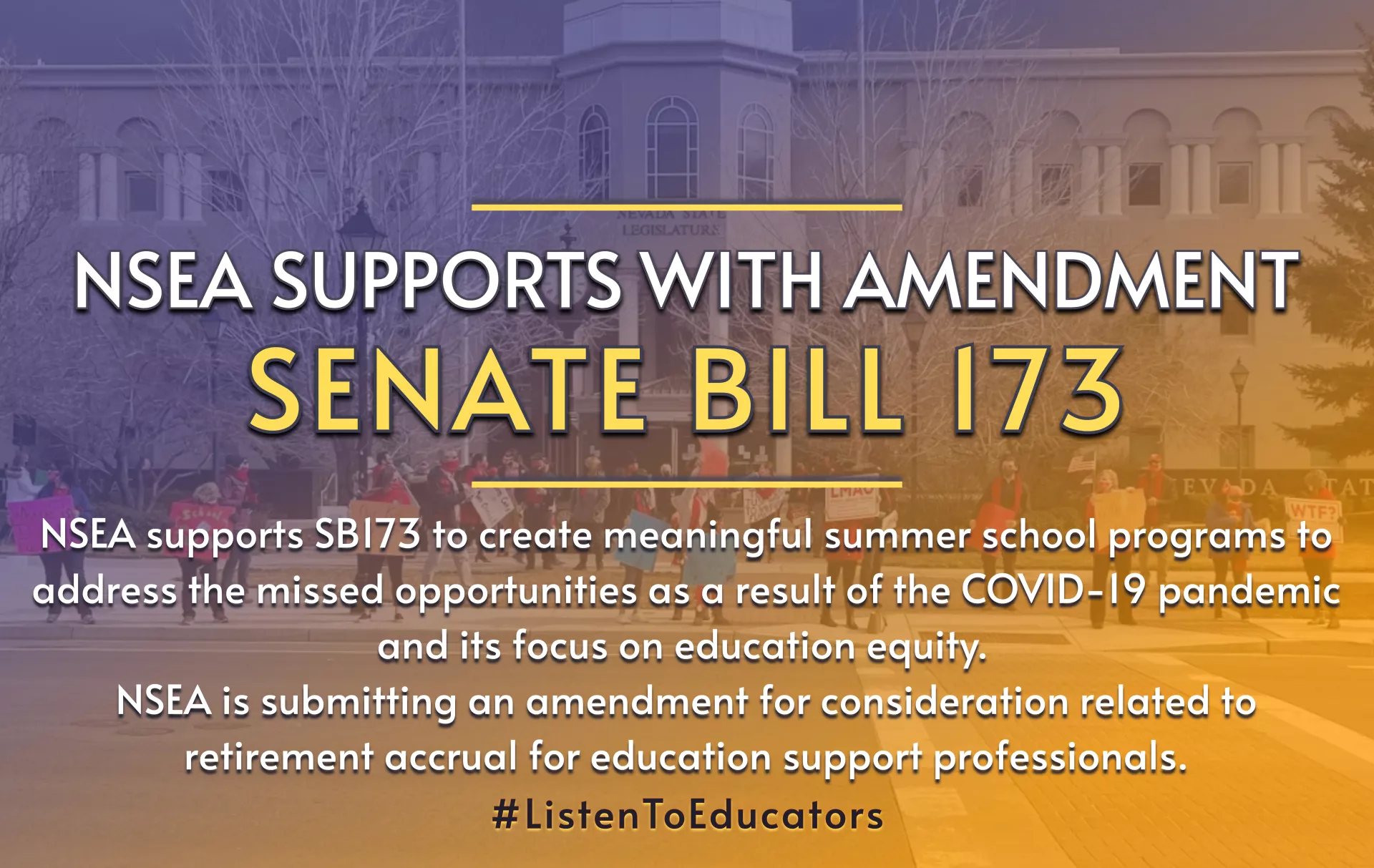In our history, there have been few more challenging times than the past year with the COVID-19 crisis. After school buildings closed last spring, NSEA members quickly responded, with classroom teachers engaging their students in distance learning and food service workers on the front lines, providing meals to families in our districts. This school year, our members are responding in a diversity of ways depending on their district and the status of the COVID-19 crisis in their communities. Some educators are back at their school building offering full, in-person instruction. Others are working in hybrid models, juggling in-person learning with distance learning opportunities. Still, others only just returned to school buildings, working to create meaningful education experiences through full distance-learning for most of the year.
However, educators understand distance education is/was not an ideal replacement for in-However, educators understand distance education is not an ideal replacement for in-person, classroom learning for most students, and educators have been concerned about the impact the COVID-19 crisis is having on education equity.
In a nationwide survey of educators conducted by the National Education Association last year, educators’ top concerns with distance learning were providing the same level of education for all students, the complexity of teaching students with disabilities, and absenteeism among students.
Educators who work in schools with higher percent of students receiving free and reduced lunch reported lower class attendance and felt distance learning was less effective for their students.
As Nevada students are now able to access some form of in-person education, this summer is an important opportunity for learning and enrichment, especially for students with disabilities, students who are credit deficient, low-income students, our youngest students, and those who have been chronically absent NSEA would like to acknowledge our parent organizations, the National Education Association, for their role in helping to secure funding to address this issue in the American Rescue Plan.
NSEA applauds provisions in this legislation providing compensation for working in summer school based upon the contract rate, as lower summer school rates fail to attract enough experienced educators. NSEA would ask school districts who run as extended school year or extended studies this summer to consider parity in compensation for educators working in those other summer programs.
